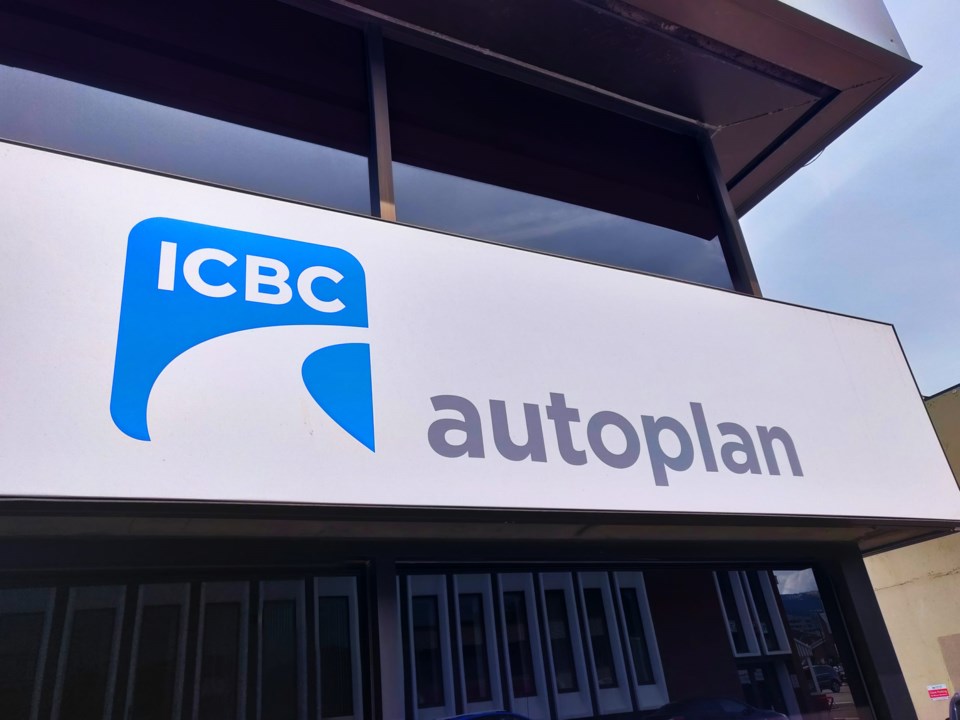The B.C. government announced with much fanfare this week the unveiling of a new online calculator that lets drivers see how much money they’ll save when the province switches to no-fault auto insurance in May.
Solicitor General Mike Farnworth presided over the event with the kind of good humour reserved for press conferences where government hands out money and knows (almost) nothing can go wrong.
“For some time we've been talking about changes at ICBC and how they're going to help make people's auto insurance premiums, and in turn their lives, more affordable,” he said.
“Today the rubber hits the road.”
There’s plenty of smooth straight road ahead for the government on the ICBC file. But there are also a few potholes on the horizon too.
First, the good news: Yes, you’re probably going to save money when B.C. switches to no-fault insurance in May.
Don’t let the private insurance sector, trial lawyers, or the Canadian Taxpayers Federation or any other naysayers fool you on that particular point. Under no-fault, the vast majority of people are going to pay less.
Is it quite the $400 less that the NDP promised?
Probably not. That was an optimistic average estimate. In reality, it depends on how much optional insurance you bought before, and a host of other factors. If you were closing in $2,000 for your annual car insurance, you might see that level of savings. If you just had basic auto insurance, you’re in line for a reduction more like $150.
But there’s enough wiggle room there for the government to milk the change for all the good news it can get.
The NDP has already done all the heavy lifting politically for the switch to no-fault insurance, introducing and passing the change, and then winning re-election in a cakewalk. It won the fight against the trial lawyers and critics by default after the pandemic started, and auto insurance became the furthest thing from everyone’s minds. So as it executes the largest change to auto insurance in B.C.’s history, any tussles on the horizon should be relatively minor.
Now, the bad news: We really have no idea what the hell is going on with ICBC’s finances right now.
The Crown auto insurer has seen its balance sheet bounce between billion-dollar “dumpster fire” and potential cash cow so fast as to give observers whiplash. And it’s all happened with a remarkable lack of access into ICBC’s actual financial picture.
The one man who knows what’s going on, ICBC CEO Nicholas Jimenez, gave a hard pass when asked for a glimpse into the books of the insurance giant on Tuesday during the press conference celebrating the online calculator.
ICBC skipped releasing its second quarter financial results late last year, saying if the provincial government didn’t have to (it provided a special COVID-19 financial update instead) then neither did the Crown agency.
Instead, we were told ICBC is on track to have a net income of $410 million this year. How? Why?
Again, we’re not entirely sure. It has to do with the fact fewer people are driving during the pandemic, resulting in fewer crashes, fewer claims paid out, and thus more money saved within ICBC.
Remarkably, the only insight we have into this phenomenon, which is accounting for hundreds of millions of dollars of change on ICBC’s books, is from a six-page report released in September that looked at the period of April to June last year. We know ICBC opened 34 per cent fewer accident claims almost nine months ago – probably due to COVID – but that’s about it.
“What we're working with government right now is to obviously finalize Q3 and then to isolate what portion of our net income, which is higher than planned, is attributable to COVID,” Jimenez said Tuesday.
“So I think those numbers will be available, as the minister said, in the very near future.”
The “very near future” is also when Farnworth expects to announce COVID-19 rebate cheques for drivers, to return some of the profits the corporation has racked up by paying out fewer claims during the pandemic.
It’s tough to speculate what those rebates might look like when we have almost no insight into ICBC’s true savings.
But you can bet the government will trumpet them as the result of some sort of stupendous financial management, and not just dumb luck derived from an unexpected offshoot of the largest public health crisis of our time.
It’s an easy short-term game for the NDP government to use ICBC as a good news machine, pumping out online calculators, no-fault insurance savings and COVID-19 relief cheques – but the government is playing with (dumpster) fire.
Because if ICBC has proven anything the past few years it’s that the corporation is at the whim of forces beyond its control. Legal fees. Expensive car repairs. Investment earnings. Court rulings. And now COVID-19.
Meanwhile, the public will have to wait weeks more to learn the true state of the Crown corporation’s finances.
Rob Shaw has spent more than 13 years covering BC politics, now reporting for CHEK News and writing for The Orca. He is the co-author of the national best-selling book A Matter of Confidence, and a regular guest on CBC Radio.
SWIM ON:
- Rob Shaw last started poking around shots (nice one), clicking on apps (brilliant), and getting sick of pandemic politics (high five!)
- Charlie Grahn has a unique perspective on the auto insurance industry - he pondered whether a shift to no-fault would solve ICBC's woes, or if the issues are more basic and structural.
- One of the biggest issues with ICBC was that its very nature placed it in a perpetual conflict of interest, explains lawyer Geoff Costeloe.



